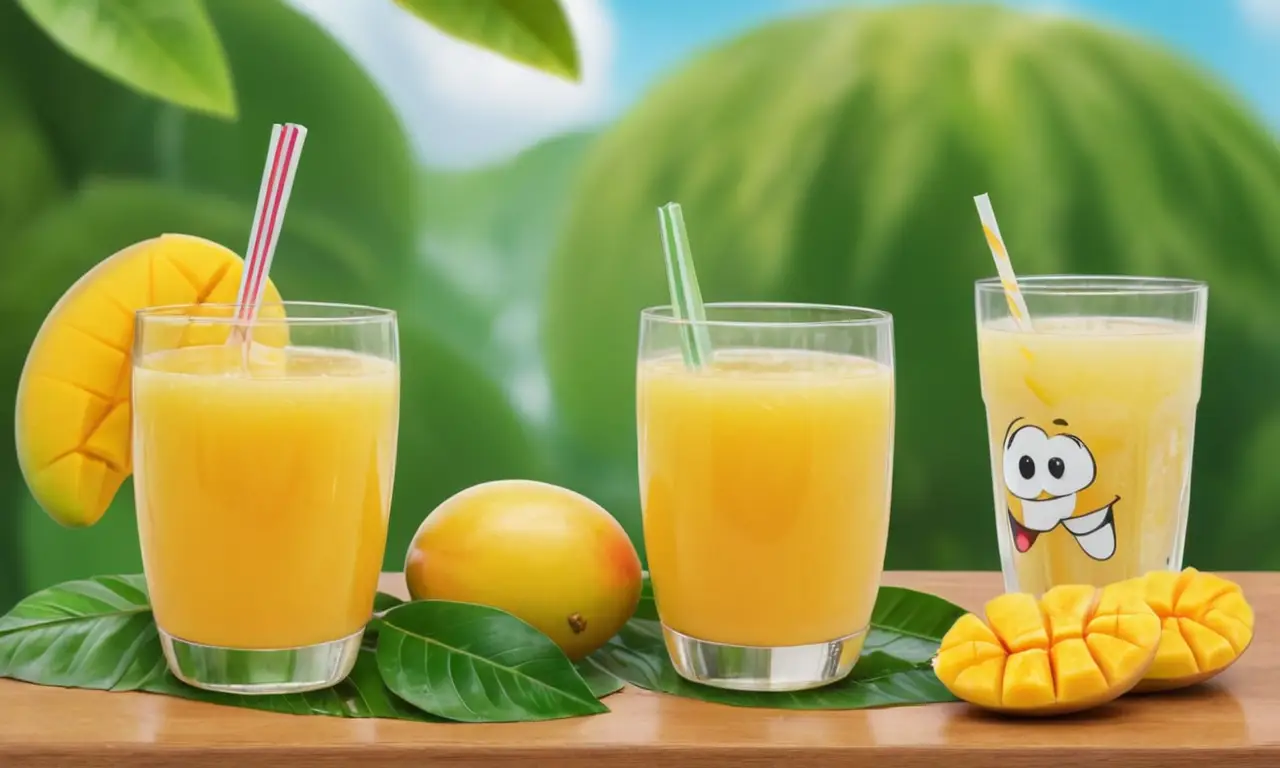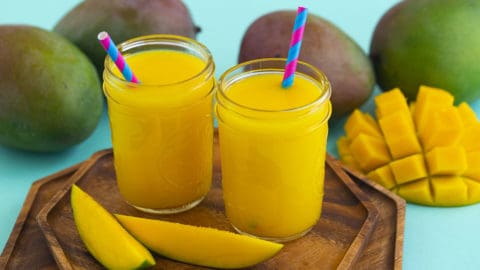Mango juice and mango nectar are both popular beverages that offer a refreshing taste of summer. While they share a common base ingredient – mangoes – their processing methods and resulting characteristics differ significantly. Understanding these distinctions can help you make an informed choice based on your personal preferences for sweetness, flavor intensity, and overall experience. This article delves into the nuances of mango juice vs nectar, exploring their definitions, taste profiles, and key differences to guide your next beverage selection.
Mango Juice vs Nectar
The primary distinction between mango juice and mango nectar lies in their composition and processing. Mango juice typically represents a more concentrated form of mango flavor, often extracted directly from the fruit without significant added ingredients. Conversely, mango nectar incorporates additional sugar and water during its production process, resulting in a sweeter and less intense mango taste.
Mango Juice Definition

Mango juice is essentially a beverage made by extracting the liquid from ripe mangoes. It can be produced using various methods, including juicing, blending, or pressing. High-quality mango juice often boasts a vibrant yellow hue and a rich, tangy flavor that captures the essence of fresh mangoes.
Types of Mango Juice
Mango juice comes in different varieties depending on the processing method and added ingredients. Some common types include:
- Freshly squeezed mango juice: This type offers the purest and most authentic mango flavor, extracted directly from the fruit without any additives.
- Pasteurized mango juice: This variety undergoes heat treatment to extend its shelf life while preserving its flavor.
- Concentrated mango juice: This form is a highly concentrated version of mango juice that requires dilution with water before consumption.
Mango Nectar Definition
Mango nectar, unlike mango juice, is a processed beverage that combines mango puree with added sugar and water. The addition of these ingredients dilutes the natural mango flavor and creates a sweeter, less intense taste profile.
Variations in Mango Nectar
The sweetness level and consistency of mango nectar can vary depending on the brand and recipe. Some nectars may contain additional flavors or preservatives, while others focus on a more pure mango taste.
Taste Comparison

While both mango juice and nectar offer a delightful mango experience, their taste profiles differ significantly. Mango juice boasts a vibrant, tangy, and concentrated flavor that truly reflects the essence of fresh mangoes.
On the other hand, mango nectar presents a sweeter, milder, and more diluted taste due to the added sugar and water.
Sweetness Levels
The sweetness level is a key differentiating factor between mango juice and mango nectar. Mango juice typically contains less added sugar, allowing the natural sweetness of the mangoes to shine through.
Mango nectar, however, often incorporates significant amounts of added sugar, resulting in a noticeably sweeter taste compared to mango juice.
Conclusion
Ultimately, the choice between mango juice and mango nectar depends on your individual preferences for sweetness and flavor intensity. If you crave a more natural, concentrated, and tangy mango experience, opt for mango juice.
If you prefer a sweeter and lighter beverage with a milder mango taste, mango nectar is a suitable option.



